Our Approach
We understand that compliance is not limited to observing laws and regulations, but also includes observing social norms, corporate ethics, common sense and morals, and other matters expected by society even if they are not explicitly stated.
Management system
Mitsui Kinzoku Group identifies Senior General Manager of Corporate Planning & Control Sector as the person with the highest responsibility for compliance. The Legal Dept., the division in charge of compliance, plays a central role in enhancing compliance among officers and employees.
In addition, under the Internal Audit Committee, which reports directly to the Board of Directors, the Internal Audit Dept. audits the status of compliance. The results of the audits are reported by the Internal Audit Dept. to and shared by the Board of Directors.
Code of Conduct
Understanding and sharing Code of Conduct
We understand that compliance is not limited to observing laws and regulations, but also includes observing social norms, corporate ethics, common sense and morals, and other matters expected by society even if they are not explicitly stated.
We have established the Code of Conduct as a set of values and a code of conduct to be shared by all officers and employees. We have translated it into local languages and distributed it to all sites. In April 2025, we revised the Code of Conduct.
Code of Conduct
Global rollout of Compliance Guidebook
We are gradually rolling out the Compliance Guidebook to overseas sites. After we have assessed the compliance-related risks in each country and region in which we operate and considering the possible impacts of such risks on our business activities, we are starting the rollout in Asia with priority, and plan to expand to other regions. The Compliance Guidebook, which explains the key actions, has been translated into local languages in cooperation with local staff to reflect the unique risks assumed from local business practices and cultural backgrounds. We are gradually rolling it out to overseas sites.
Global rollout of Compliance Guidebook (2016ー2025)
 Japanese(2025)
Japanese(2025)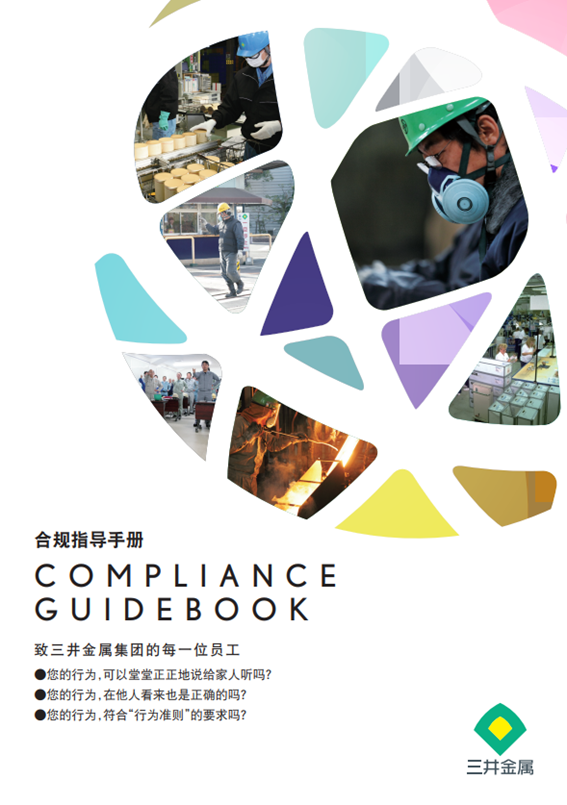 Simplified Chinese (2017)
Simplified Chinese (2017)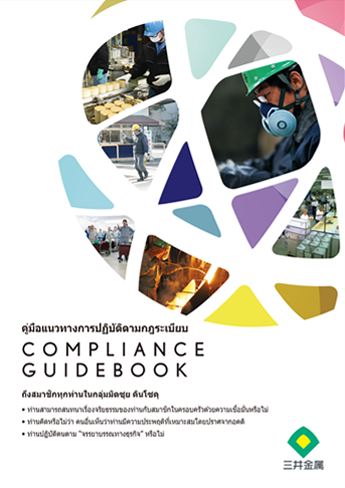 Thai (2017)
Thai (2017)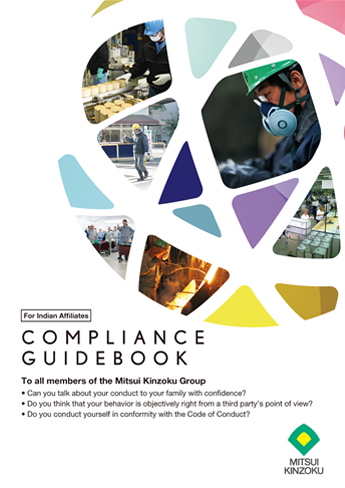 English:India (2018)
English:India (2018)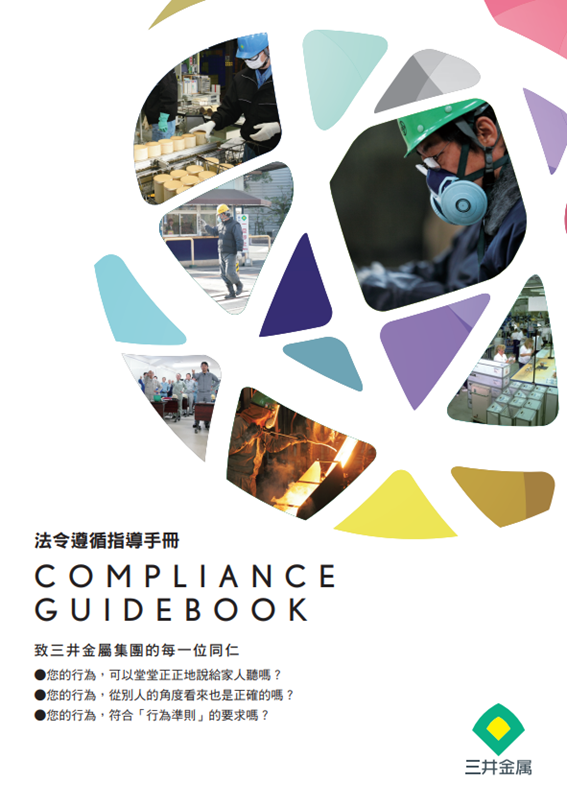 Traditional Chinese (2018)
Traditional Chinese (2018)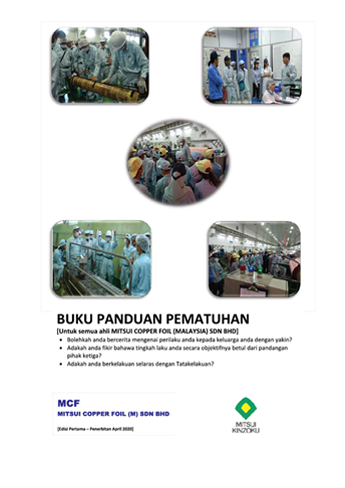 Malay (2019)
Malay (2019)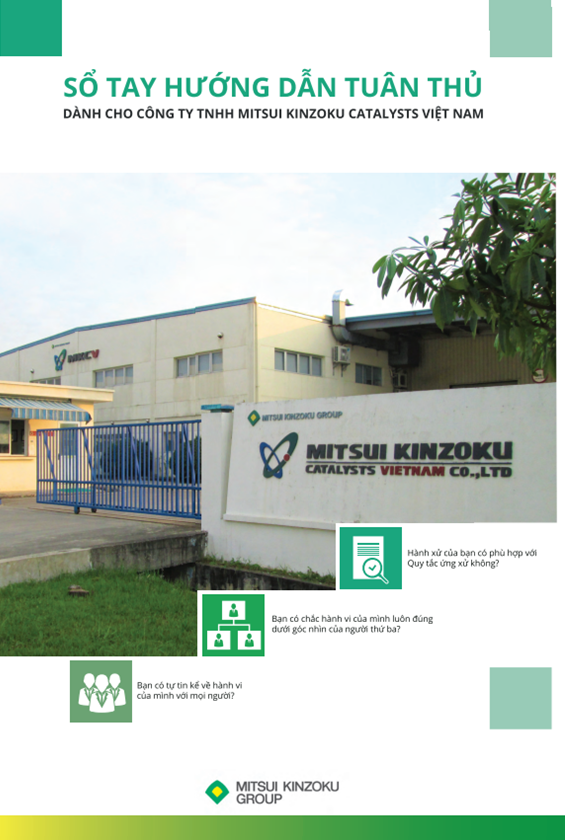 Vietnamese (2019)
Vietnamese (2019)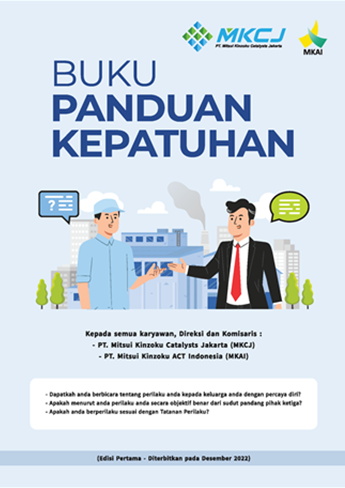 Indonesian (2022)
Indonesian (2022) French:Morocco (2023)
French:Morocco (2023)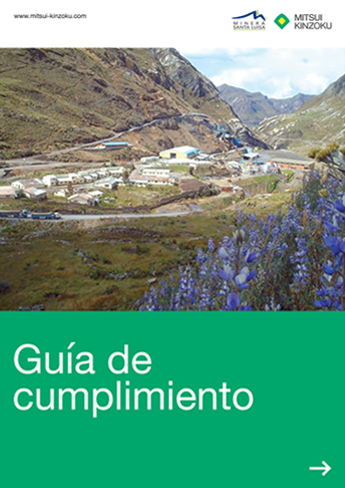 Spanish:Peru (2023)
Spanish:Peru (2023)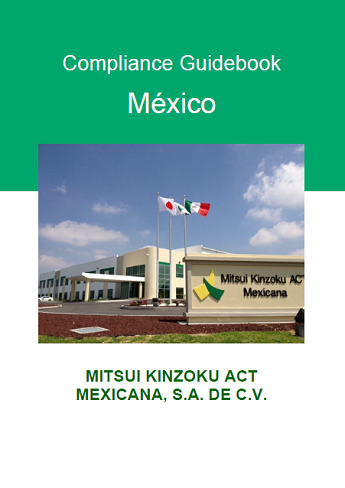 Spanish:Mexico (2024)
Spanish:Mexico (2024)
Compliance awareness surveys
To measure the understanding level of the Code of Conduct and the effectiveness of compliance initiatives, we have conducted biennial compliance awareness surveys with employees of Mitsui Kinzoku and consolidated domestic subsidiaries since FY2017.
Compliance training
Mitsui Kinzoku Group runs an array of training programs for executives and employees to ensure compliance.
The Code of Conduct/compliance training
We regularly conduct training sessions to explain overall compliance based on the Code of Conduct. At our sites in Japan, we provide compliance training for all ranks including new employees, and executive management training for directors and auditors of all affiliates. We also conduct compliance training for national staff at overseas sites.
Theme-based seminars
In addition to training for individual compliance issues related to safety and quality, we also provide seminars on various topics as needed, with the topics selected primarily by the Legal dept. in consideration of compliance risks specific to each site and local social conditions.
Theme examples
- Act on Waste Management and Public Cleansing (Waste Management and Public Cleansing Act);
- Trade secrets management
- Stamp duty
- Antimonopoly Act
- Act against Delay in Payment of Subcontract Proceeds, etc. to Subcontractors (Subcontract Act)
- Foreign Exchange and Foreign Trade Act (Foreign Exchange Act, security export control).
Photo:The Code of Conduct/compliance training provided at overseas sites.
Internal and external whistle-blowing system
We have established a whistle-blowing system for both internal and external stakeholders. The system covers concerns about violations of laws/regulations and internal rules related to unfair competition, bribery/corruption, and occupational health and safety, as well as social and environmental risks, including but not limited to human rights, in our business activities and workplaces.
In order to thoroughly protect whistleblowers, the system ensures anonymity and strictly prohibits any disadvantageous treatment of whistleblowers and witnesses to testify to the facts. The details of the whistle-blowing are shared promptly with the Audit & Supervisory Committee, and reported to the Board of Directors on a regular basis.
We have established the Mitsui Kinzoku Hotline (MHL) for all officers and employees of the Group as internal and third-party (law firm) contact points. We have also set up a Chinese language hotline at a Chinese law firm in Beijing for our sites in China. We disseminate information on the contact points to officers and employees through compliance training and the Compliance Guidebook. In FY2020, we made the whistle-blowing system a multi-line system, and in May 2023, we outsourced an internal multilingual contact point to a third party to increase user convenience. Furthermore, female staff have been assigned to the response team to receive whistle-blowing reports, to make it easier for women and native speakers of foreign languages to report incidents.
We have set up “Compliance Consultation Desk” specialized for compliance and “Environmental and Social Risks Consultation Desk” on our corporate website for external stakeholders to report concerns at any time.
Mitsui Kinzoku Group internal and external whistle-blowing system (MHL: Mitsui kinzoku Hotline)
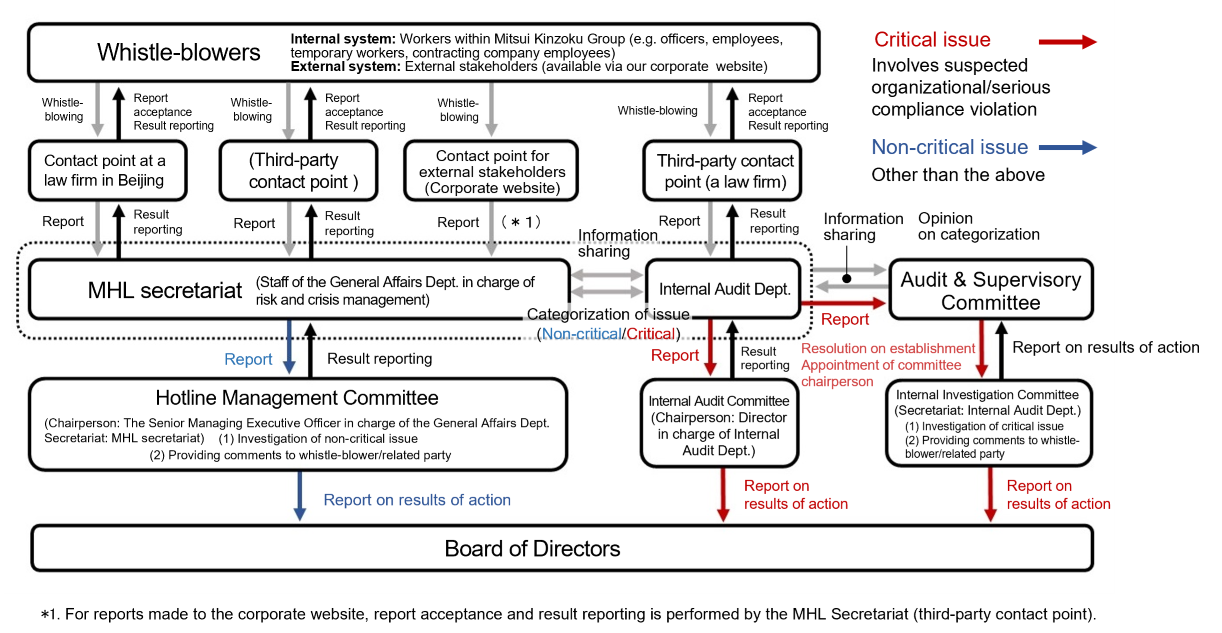
Initiatives to prevent anti-competitive practices and bribery/corruption
Article 4 of the Code of Conduct states “Honest Business Activities”. In the Compliance Guidebook, we require all officers and employees to engage in appropriate activities based on free and fair competition. The guidebook specifically states that proper activities include (i) establishment of compliance system and thorough compliance with competition law and (ii) prohibition of bribery and corruption.
With regard to competition law, we have created the Antitrust Compliance Policy as a separate volume of the Compliance Guidebook. The Policy was created in four versions (Japanese, English, simplified Chinese, and traditional Chinese) and distributed accordingly to ensure that internal procedures are properly performed.
To prevent bribery and other forms of corruption, as well as distributing the Compliance Guidebook globally we have facilitated each of our sites to conclude an anti-bribery/corruption agreement with its suppliers. The procurement department in each of domestic and overseas sites has asked its suppliers to sign contracts containing CSR provisions and pledges to respect the Code of Conduct in the efforts of the supply chain management lead by the Supply Chain Committee.
Related to these initiatives, the anti-bribery/corruption agreement contains more detailed conditions aimed at preventing bribery/corruption (e.g. prohibition of kickbacks, obligation to report identified violations, cancellation of the contract in case of a violation), and is particularly directed at companies in Asia.
We periodically conduct legal audits of each site both on-site and in writing. The audits check for violations, review the compliance situation and confirm the effectiveness of measures to prevent anti-competitive practices and bribery/corruption described in the Code of Conduct.
Initiatives for economic security
In response to the recent drive for economic security in society, Mitsui Kinzoku Group is implementing measures to address the issue, chiefly in terms of trade secrets management and export control.
Trade secrets management
Mitsui Kinzoku Group manages its trade secrets in a systemized way. The primary framework consists of the Information Management Rules, Trade Secrets Management Detailed Rules, and other related regulations (all formulated in 2017), along with the Information Management Committee.
The Committee reports to the Chief Information Management Officer, a position that is held by the Senior General Manager of the Corporate Planning & Control Sector. We have set up the Information Management Committee for the purpose of safeguarding our customer information, technical information, and business know-how.
In addition to basic framework, at each site, the head of the organization is appointed to serve as the site’s Information Administrator, a role that is responsible for fulfilling a range of tasks. Such tasks include: identifying trade secrets; ensuring indication of such secrets; managing the use of and access to ICT tools; keeping records of data access and download history; providing education and training on a regular and ongoing basis; and confirming confidentiality agreements and pledges signed between our officers and employees and business partners.
Furthermore, we perform audits of information management systems, invite representatives of law-enforcement agencies to give lectures, share successful pioneering practices among Group sites, and promote other activities to help improve the information management systems at each site.
Export control (security export control)
In 1988, Mitsui Kinzoku created product export control rules based on the Foreign Exchange and Foreign Trade Act (Foreign Exchange Act), and registered the rules with the Ministry of Economy, Trade and Industry (METI) as its export control compliance program (CP).
We have since formed the Export Screening Committee, chaired by the representative director. Reporting to the Committee, those in charge of each area of business planning, technology/engineering, and administration at each business division are assigned to operate the acceptance/rejection assessment and user check programs.
Every year, the secretariat (Legal Dept.) audits the compliance status, and the results are reported to the METI. The Group’s major subsidiaries in Japan also register their own CP with the METI to facilitate group-wide compliance with the Foreign Exchange Act.
In addition, we have made preparations to utilize databases provided by a third-party agency to conduct research on suspect companies in a bid to strengthen our export control.
Integrated Report Compliance